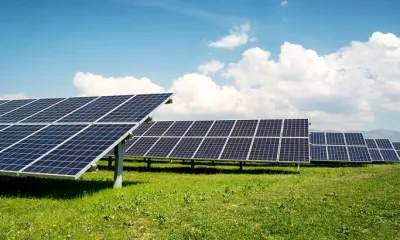Households and businesses with solar power installations exceeding 10 kilowatts (kW) have been excluded from a special scheme that allows consumers to supply excess electricity to the national grid and receive compensation.
The Energy and Petroleum Regulatory Authority (Epra) announced that only those producing less than 10kW of solar power would be eligible for the net-metering system.
The final regulations, outlined in the Energy Act (Net Metering) Regulations, 2024, state that domestic customers with single-phase supply can have up to 4kW installed capacity, while those with three-phase supply can have up to 10kW.
“4kW is for single phase, while 10kW is for three phase. This is the typical demand of such customers, based on the RIA study findings,” explained Epra Director-General Daniel Kiptoo.
Industrial and commercial customers have a higher cap, limited to 1 megawatt (MW). The regulations specify that the installed capacity for these customers “shall be capped at the maximum load demand in kW achieved in the 12 months preceding the application for net metering.”
The net-metering scheme allows customers generating excess solar power to receive credits instead of payments for electricity supplied to the grid. These credits are valued at half the rate that Kenya Power charges its customers. For instance, if Kenya Power sells a unit of electricity for Sh32, net metering customers will receive a credit of Sh16 per unit supplied.
Credits can offset future electricity bills during months when consumption exceeds production. However, unused credits will expire at the end of Kenya Power’s financial year on June 30.
The government has capped the total licensed capacity for net metering at 100MW, which is only three percent of Kenya’s total installed power capacity of 3,321MW as of last year. This limitation aims to protect Kenya Power from significant revenue losses.
Insiders reveal that the 10kW cap is a measure to limit Kenya Power’s exposure. “The net metering regulations were put on hold for years amid fears that they would sound a death knell for Kenya Power by accelerating the shift to own-source power generation,” sources noted.
Despite these limitations, net metering offers several benefits, including reducing strain on distribution systems and preventing losses in long-distance electricity transmission. It has become popular globally for allowing utilities to manage peak electricity loads more effectively.
















